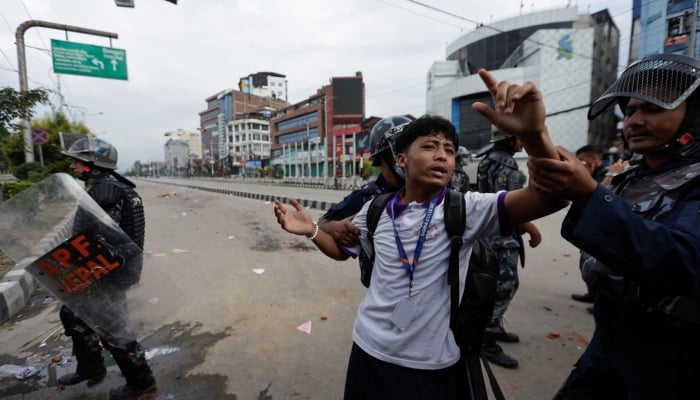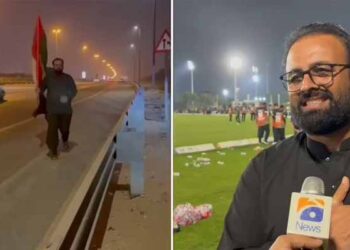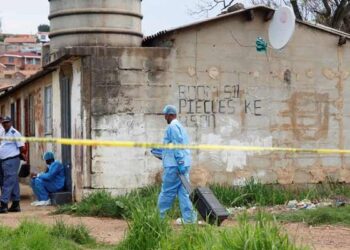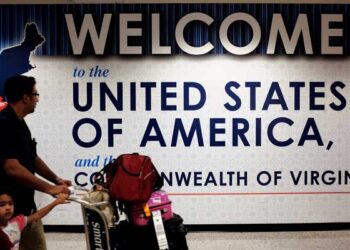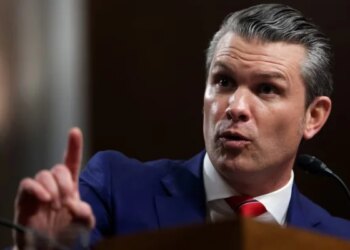Select Language:
Clashes erupted in Kathmandu and other cities in Nepal after young protesters marched against corruption and the government’s move to block multiple social media platforms. Authorities reported at least 19 deaths, as police used tear gas, rubber bullets, and force to disperse crowds attempting to storm the parliament building. Some youth managed to breach security barriers, setting fire to an ambulance and hurling objects at riot police guarding the legislative complex. One witness described the police firing indiscriminately, with bullets hitting a protester behind him. Over 100 individuals, including 28 officers, sustained injuries and received medical treatment, with many injured being transported to hospitals via motorcycles. Violence also broke out in Itahari, resulting in two additional fatalities. The unrest prompted Prime Minister KP Sharma Oli to convene an emergency cabinet meeting to address the turmoil, which was triggered earlier that day by thousands of mainly young people, some in school or college uniforms, rallying in the streets carrying flags and placards demanding the unblocking of social media and an end to corruption. Protest organizers labeled these demonstrations “Gen Z protests,” reflecting widespread frustration among Nepal’s youth over government efforts to combat corruption and improve economic prospects. The recent ban on access to platforms like Facebook, imposed due to allegations of unregistered misuse, has intensified public anger. Officials justified the measure as necessary to crack down on false accounts used for hate speech, fake news, and fraud. The police were instructed to use water cannons, batons, and rubber bullets, with the army deployed around the parliament to support law enforcement. The curfew, extended until 10 p.m., now covers the prime minister’s office and government buildings in Singha Durbar. Although violence diminished later in the evening, protesters remained near the parliament building. Similar protests took place in Biratnagar, Bharatpur, and Pokhara. Many Nepalese see corruption as a pervasive problem, with critics accusing the Oli government of failing to fulfill promises to address corruption and economic challenges. Annually, thousands of young Nepalis seek employment or education abroad. Former finance secretary Rameshwore Khanal suggested that, despite unmet job creation goals, the core anger appears rooted in dissatisfaction over government appointments and inadequate anti-corruption efforts. The social media shutdown comes amidst a global trend of governments tightening control over online platforms, citing concerns over misinformation, privacy, online threats, and national security, though critics argue these measures threaten free speech.

